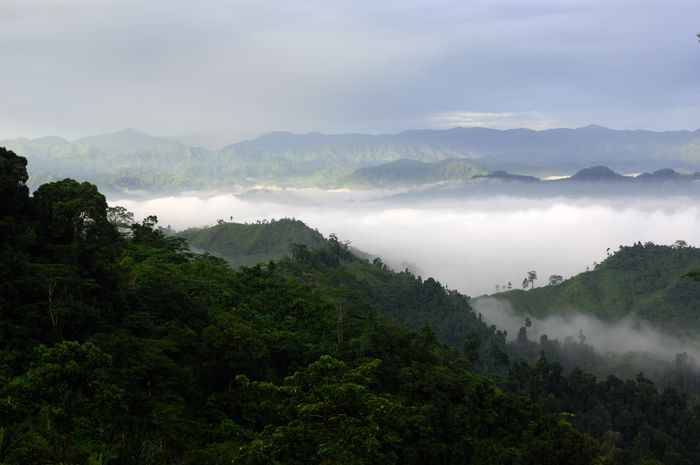The dilemma is real: Responsible tour operators in the Global South need to deal with the fact that many of their international guests cover large distances and often chose air travel to reach their destination. This causes significant amounts of greenhouse gas emissions. In order to keep their ecological footprint as small as possible, air travellers should offset their emissions caused by their means of transport to and from the destination. In Peru the social enterprise Nature Services Peru with its Regenera project helps local enterprises to assume their share of responsibility and offset their impact by supporting nature protection projects.
The Amazon region is also called “the green lungs of the earth“. Though the term may not be very accurate, it points to the major global value of the Amazon rainforests. They provide large CO2 sinks, contribute to stabilising the climate, and are home to an enormous biological diversity. The devastating fires in the region over the past few weeks have given rise to concern all over the world.
Peru, too, is seeing an increasing awareness of the need to conserve these unique ecosystems. Projects like those coordinated and implemented by the Peruvian Regenera initiative can help protect forests from deforestation and slash-and-burn agriculture. Regenera works with local communities called “Guardianes“ (guardians). Due to the precarious financial situation in Peru, communities often feel compelled to cut down trees to sell the timber and use the land for cultivation. “Guardianes“ are supported in managing their land in a productive and responsible manner, for example by shifting to organic cultivation or by planting native species to restore biological diversity. The projects do not just help in mitigating global warming, they also help local people in socioeconomic terms. The offsetting done by Regenera is based on the transnational ‘Greenhouse Gas Protocol‘. Regenera also works in line with the carbon dioxide equivalents of the National Forest Conservation Programme implemented by the Peruvian Ministry of Environment.
In order to finance these projects, Regenera enables responsible enterprises in Peru to offset the CO2 emissions they caused. The objective is to offset the negative impacts caused by the greenhouse gases emitted by doing something positive in return. Greenhouse gas once emitted can of course not be taken back.
Financed by local enterprises
The certified Peruvian tour operator Andean Lodges is one of the companies working with Regenera in order to contribute to climate mitigation. At the beginning of the compensation process, they measure all the emissions caused. From office operations and the actual touristic services rendered to the company’s indirect emissions caused by the guests in Peru travelling to and from the destination, all greenhouse gas emissions are included. In order to calculate these emissions, average data are used and multiplied by the number of guests per year.
By then offsetting the emissions, the company can reduce its carbon footprint. “We purchase bonds, in proportion to the tonnes of greenhouse gas emissions we generate. This money is used to finance sustainable projects to conserve the rain forest. In this way, we offset the emissions caused by us with those we avoid by protecting the forest”, explains Juan Carlos Flores, General Manager of Andean Lodges. The projects supported are mainly conservation or restoration projects for fragile ecosystems in the Peruvian Amazon.
Awareness raising by TourCert
Andean Lodges was sensitised for environmental and climate protection as part of the sustainability certification with the German organisation TourCert. During the certification process, tourism enterprises have to measure their CO2 emissions. For accommodation, the indicator ‘CO2 emissions per bed night‘ will be generated. For tour operators, the CO2 emissions of the tour packages sold will be measured and the climate-related indicator ‘CO2 emissions per guest per day‘ will be generated. All means of transport used for travel to and from the destination are included. All these emissions will be accounted for, irrespective of the fact whether tour operators actually sell the flights as part of their packages or not.
Many of the European tour operators certified by TourCert have over the past few years either included CO2 offsetting through Atmosfair, Myclimate or Klima-Kollekte in the package price or are covering part of it. Other operators provide their customers with information included with the booking documents.
Slow rethinking
There is a visible shift happening in South America. Sustainability – especially in the context of tourism – is increasingly taken into account. However, Regenera remains one out of a few pioneers who have started to turn growing awareness into tangible action. Their message on the occasion of the upcoming climate summit in New York is clear: All companies, irrespective of their size and influence, must assume responsibility. What is particularly important is to really prevent greenhouse gas emissions and to conserve natural ecosystems.
Andean Lodges shows how responsibility can be shared between tour operators, tourists, and local tourism enterprises. Tour operators selling packages must inform and sensitise tourists in order to enable them to take responsible decisions. This includes avoiding short-haul flights in the destination.
Andean Lodges noticed an increasing interest in responsible and sustainable travel. However, they found there is not enough demand for it yet. On the side of the service providers, there is also significant scope for improvement. “Tour operators need to adapt to change and take responsibility for the implementation of sustainable practices,“ says Juan Carlos Flores.
Angela Giraldo is Head of Training and Consulting at TourCert.
Translated from German by Christina Kamp.


